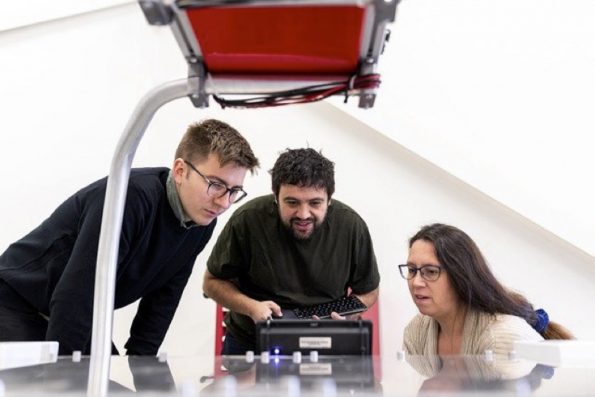A Laboratory Information System Keeps Your Ducks in a Row
A lab manager has many things to keep track of: the status of experiments, inventory of reagents and samples, equipment calibration, and more. A good laboratory information system (LIS) can put all of this information at your fingertips, allowing you to manage everything more efficiently at your company. When looking at laboratory information systems as you start your company, you should consider your objectives and the alternative capabilities offered.
All Your Information in One Place
Today’s laboratory information systems integrate seamlessly with the other systems in use in your laboratory to give you access to all of your information on a single platform. When laboratory information systems are tied into a barcode based inventory management system, the electronic lab notebook used by your researchers, and your smart equipment, you have a complete view of what is happening in the lab on any given day.
Total Inventory Control
If your LIS is integrated with your inventory, you’ll have the most up-to-date information on your lab’s supplies. Know when you are running low on reagents or when they are about to expire. Order only what you need, when you need it. You’ll save time and money.
Project Management Made Easy
Some of the top LIS options on the market also include scientific project management
capabilities. Having everything integrated makes it easy to check the status of every project ongoing in your lab. See who is on track and who might need checking in with. Ensure that every researcher has the resources they need, that there are no scheduling conflicts for use of important lab equipment. Easily provide updates to stakeholders. Manage and reassign tasks as needed based on workforce changes and unplanned absences.
Keep Your Equipment Humming Along
Well-calibrated equipment is integral to the success of a busy research lab. If a machine has fallen out of calibration, or isn’t working correctly, it can be a disaster. It’s impossible to function with inaccurate data, or a complete lack of data. Your laboratory information systems can keep you up to date on the status of the equipment of your lab, allowing you to schedule calibration and repairs, and then dip into the project management module to make any necessary adjustments to timelines based on delays that may arise if a machine is out of commission.
Work Smarter, Not Harder, with a Laboratory Information System
How much time do you waste on an average day, switching between different software systems, or dealing with outdated analog systems? Good laboratory information systems bring you fully into the 21st century, allowing you to work more efficiently because everything is neatly integrated into a single system. Spend more of your time actually doing productive work, contributing to the valuable research performed in your lab, and less time looking for missing reagents or chasing down researchers for updates on their projects.
If you feel like it’s time for your lab to adopt a LIS, take some time to do some research. There are a number of options on the market these days, so you’ll want to choose one that has the options you need most. Soon, all of your ducks will be in a row and you’ll wonder how you ever got by with your old system.


